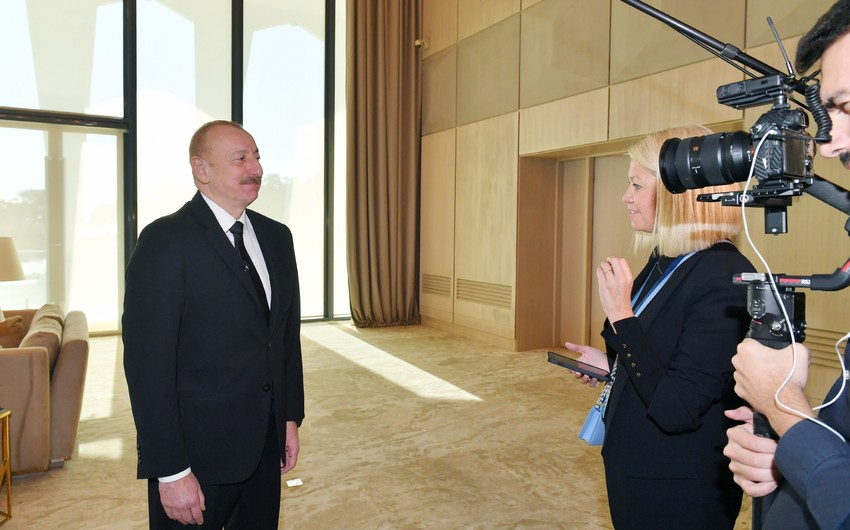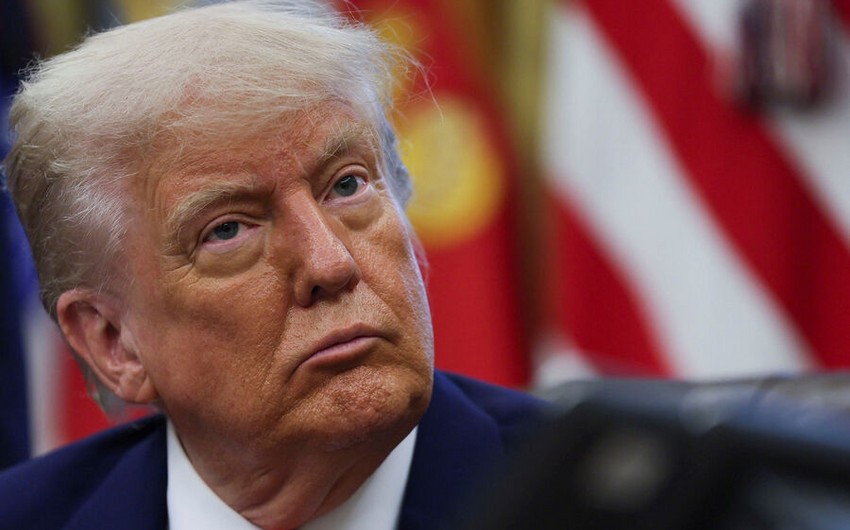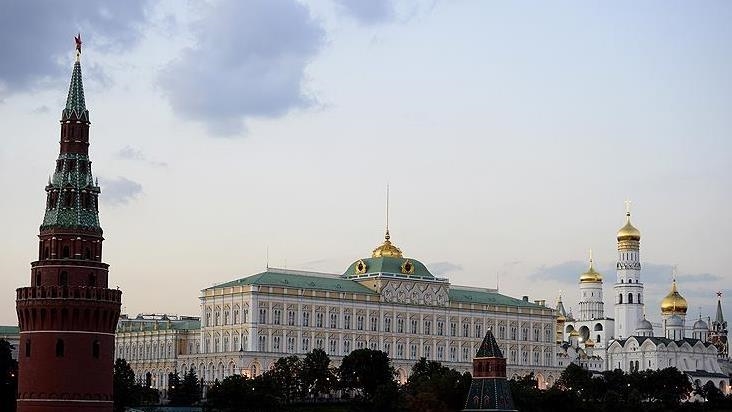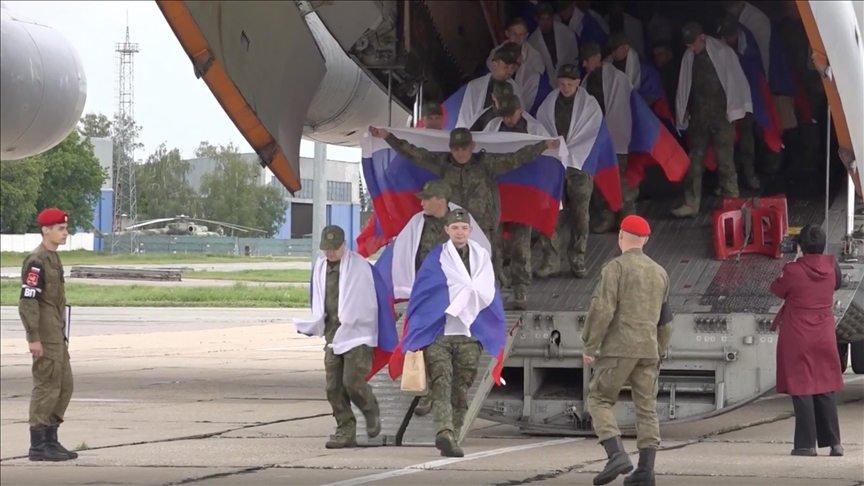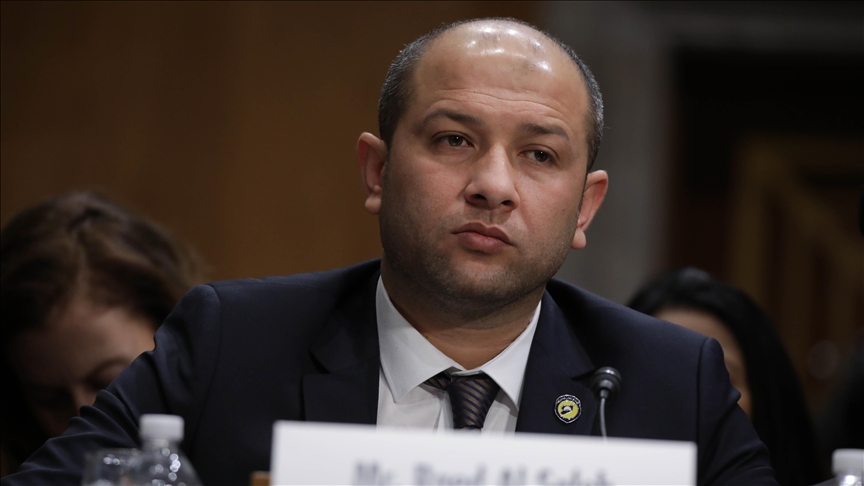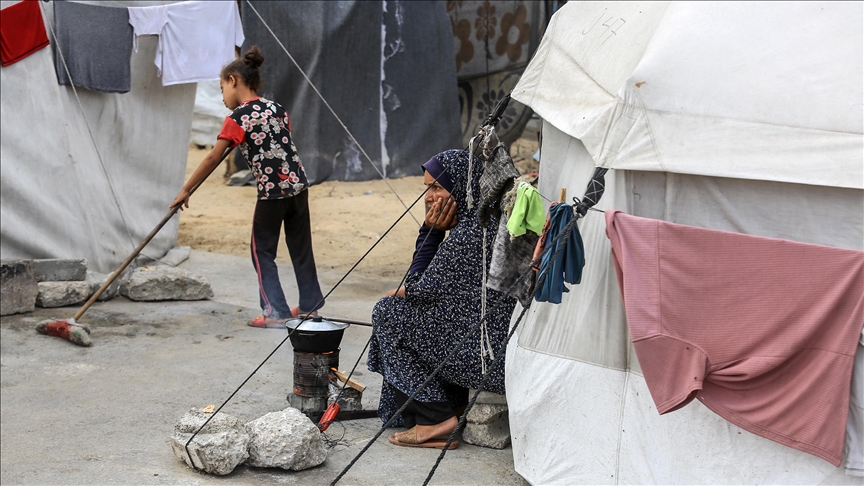On March 1, the President of the Republic of Azerbaijan, Ilham Aliyev, was interviewed by Euronews TV channel as part of the 10th Southern Gas Corridor Advisory Council Ministerial Meeting and the 2nd Green Energy Advisory Council Ministerial Meeting.
Ednews presents the interview.
Euronews: If you could please begin by telling me why are today's meetings so important for the energy industry, the achievements and next steps in successful operation and development of the Southern Gas Corridor?
President Ilham Aliyev: You know, when we started this project, there were a lot of different ideas, how it would succeed. There were optimists and pessimists, and also those who thought that we would not be able to implement it. But we were committed, and we knew that it is possible to do it. But we needed a broad international cooperation. So, we started to build this partnership between countries, between companies, inviting leading international financial institutions to support us with their financing. And a 3500-kilometer-long pipeline is now a reality. It is not a dream any longer. And it is embracing more and more countries, because, as I said today at the opening session, we have new interconnectors, which allow to transport natural gas to new destinations. And really, it’s changing completely the geography of energy supplies, issues related to energy security. And when you see good results of the initiative, which we launched 10 years ago, of course, you always must feel happy.
Euronews: It's a very pivotal year as well. COP29 is on the horizon. And the development of these renewable energy projects really showcase how Azerbaijan is trailblazing the future of sustainable energy.
President Ilham Aliyev: Yes, I think this is part of our overall green agenda and our feeling of responsibility, because the country rich with fossil fuel should be among the frontrunners in green transition. We do it not because we lack traditional resources, but because we want to contribute using the financing, using the revenues, which we get from oil and gas sales, to invest in renewables and to create a common understanding about the need for that. We see it here in Baku every year. Every year, we see how the Caspian Sea is becoming shallower. Everybody who lives by the seaside sees it, even here in the center of Baku. So, we see the implication and dangerous implication of the climate change. Less water in our rivers, less snow in our mountains, less water in the Caspian Sea. And if we don't address this issue with passion and with the commitment, then all of us will suffer.
So, renewable projects agenda of Azerbaijan is very ambitious. The Caspian Sea potential of Azerbaijan is 157 gigawatt, which is based on the assessment of International Finance Corporation. And we already started this important journey. And we plan to use renewables maybe in the 10-year time at the maximum degree and reduce the consumption of natural gas domestically.
Euronews: I liked in your speech inside, you said the countries who have oil and gas should not be blamed. When we talk about fossil fuels, that’s not their fault but they should be judged on these views and said they should be judged on how they address environmental protection and green transitions. Do you truly believe this, yes?
President Ilham Aliyev: Yes, of course. This is how we need to change a little bit the narrative about that because being a country with fossil fuel, of course, is not our fault. It's our, I think, achievement that we managed to avoid a so-called oil curse that many countries with oil and gas reserves have faced. We transformed oil into development. We managed to provide a fair distribution of wealth. We reduced poverty in Azerbaijan during the last 20 years from 50% to 5%. And all what you see here in Baku is absolutely new development of infrastructure and improvement of living conditions of the people. So, the narrative now, unfortunately, is that fossil fuel is something dangerous, which is bad, and the countries having these resources must be blamed for that. My message was that judge us by what we do, how we treat it, how we use revenues in order to address the needs of the people and stimulate the green agenda. I hope my message will be heard.
Euronews: Mr. President, Your Excellency, thank you so much for your time.

